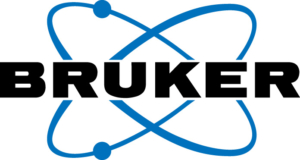IMPORTANT DATES
Online meeting: 3-4 August, 2021
Nominations for PCYI-Award competition: 30 June

© ICMRM 2021
© Werner Nystrand/Folio/imagebank.sweden.se
Sir Paul Terence Callaghan (19th August 1947 – 24th March 2012) was a New Zealand physicist and Fellow of the Royal Society who authored over 230 journal articles that present major advances in NMR methodologies for the study of molecular dynamics and molecular organization in complex fluids, soft matter and porous materials. He is most well known in the ICMRM community for his contributions in Rheo-NMR, diffusion of molecules in porous media, and development of NMR techniques that utilise the earth’s magnetic field. As the founding director of the MacDiarmid Institute for Advanced Materials and Nanotechnology at Victoria University of Wellington, he held the position of Alan MacDiarmid Professor of Physical Sciences.
He was also an outstanding and beloved mentor to young investigators in the ICMRM community. He was involved with the ICMRM conference through organization and participation from the very beginning in 1991 until his last attendance in China, 2011. He placed a high priority on attending the Young Investigator section at the meeting, and could be relied on to engage with all the finalists in the Young Investigator competition through thought provoking questions and follow-up discussion. In 2013, the Young Investigator Award was renamed the ‘Paul Callaghan Young Investigator Award’ in honour of his commitment to mentoring young investigators.
Brief nominations of young investigators are accepted via the contact page before 30 June. Include name, year of PhD, current position, and link to a publication or preprint being representative of the candidate’s research within the scope of ICMRM. Eligible young investigators are at most a few years post-PhD degree and do not yet have a tenure-track or permanent position. A jury will select up to five finalists to present their work in a plenary session and choose the best presentation to receive the ‘Paul Callaghan Young Investigator Award’.
Jury: Diana Bernin (Chalmers University of Technology, Sweden), Luisa Ciobanu (Neurospin/CEA, France), Gisela Guthausen (Karlsruhe Institute of Technology, Germany), Carl Michal (University of British Columbia, Canada), Thomas Oerther (Bruker BioSpin, Germany)
This year’s winner: Gonzalo Gabriel Rodriguez (University of Córdoba, Argentina)
Previous winners
2019 (Paris): Marine Moussu
2017 (Halifax): Jeffrey Simkins
2015 (Munich): Hilary Fabich
2013 (Cambridge): Alexander Tayler
2011 (Beijing): Daniel Holland (runners up: Antoine Vallatos and Qingxia Gong)
2009 (West Yellowstone): Chunqi Qian
2007 (Aachen): Paul P. Zänker, Meghan E. Halse, Shinya Handa
2005 (Utsunomiya): Juan Pelo and Shin Utsuzawa
2003 (Snowbird): Elke Kossel
2001 (Nottingham): Steven Beyea
1999 (Heidelberg): Pablo Prado